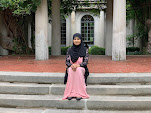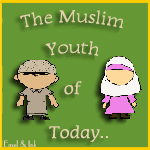The fasting Muslim is recommended to follow the Sunnah of the Prophet (his customs and manners) in doing the following acts:
1) Eating before the break of dawn is a recommended act. This makes fasting easier and is, therefore, recommended to be as late as possible, such as just before the call for the dawn prayer.
2) It is also recommended to break the fast immediately after sunset.
3) Also one should be more active in doing all kinds of good deeds, foremost of which is the performing of the five daily prayers at their proper times in congregation with other Muslims and the giving of the poor-due (Zakat). Besides the obligatory prayers and Zakat, one should try as much as one can to do more of the non-obligatory but recommended prayers, specially the Tarawih prayers during the evening, on the night of Qadr in particular, and being more generous in helping the poor and in all ways of promoting the cause of Islam. One should also spend more time reciting the Quran and pondering over the meanings of its verses, and turn as often as possible to God, asking Him to bestow His peace and blessings on the Prophet as well as asking for one's forgiveness and the forgiveness of his brother and sister Muslims.
4) One also should not answer back anyone who insults him but should only respond, "I am fasting."
5) It is also recommended to offer specific supplications at the time of breaking the fast. It has been reported that the Prophet (peace be on him) said, "O Lord, it is for you that I have offered my fasting and it is with provision from you that I am breaking the fast. Accept (this fast) from me therefore, you are the All-Hearing, the All-Knowing." Or the person may say, as the Prophet also said, "Thirst has gone, the arteries are moist and the reward is sure, if God wills." (Recorded by al-Daraqutni.)
6) To break the fast with some fresh dates if available, otherwise with any available sweet fruits like grapes, is considered a recommended act. "The Prophet's Sunnah was to eat, wear and ride whatever was available in his land, of whatever Allah made permissible. Therefore, anyone who uses what is available in his land would be following the Sunnah." [Ibn Taimiya]
7) One should try to invite others, especially the poor, for the meal that one breaks the fast.
8) Finally, it is encouraged to spend the last ten days of Ramadan in seclusion in a mosque. This practice is called I`tikaf, a state of complete devotion to worship. People in this state are not allowed to leave the mosque except for personal necessities. Similarly, they are not allowed to have sex with their spouses.
Source: http://www.islaam.com/Article.aspx?id=152
Subscribe to:
Post Comments (Atom)





No comments:
Post a Comment